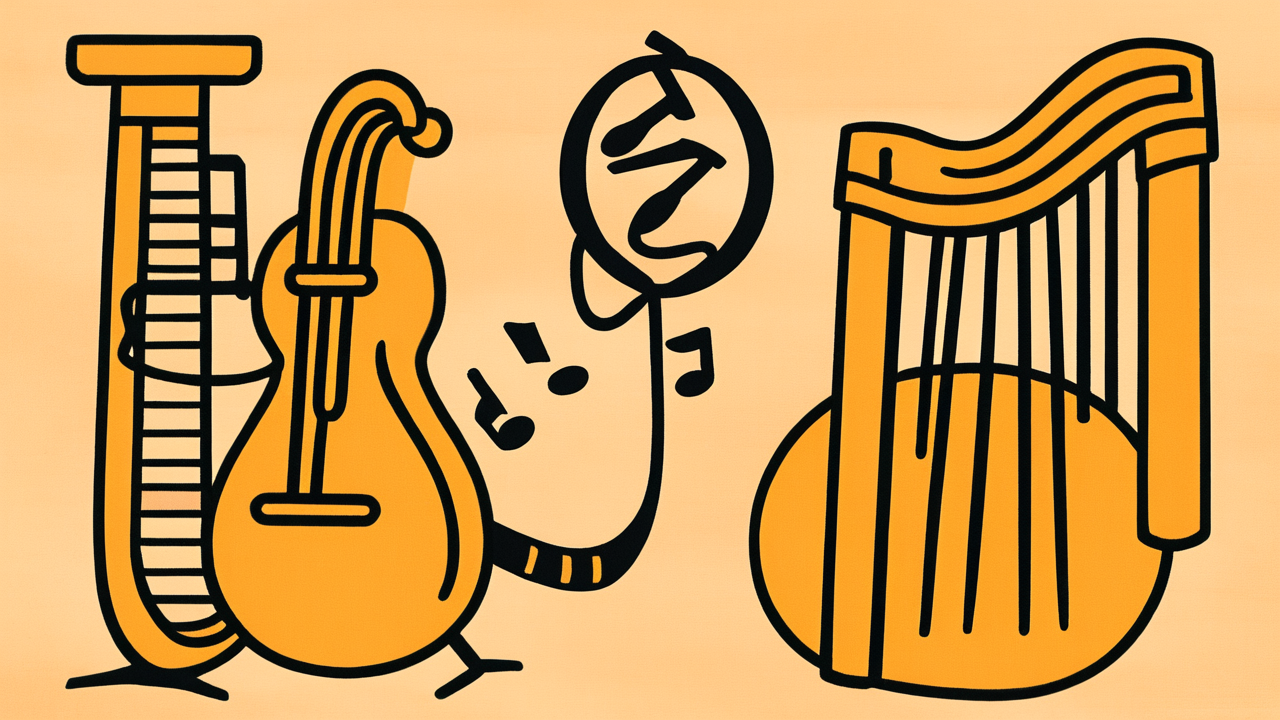How to Read “断琴の交わり”
Dankin no majiwari
Meaning of “断琴の交わり”
“Breaking qin’s friendship” refers to a relationship bound by true friendship, where people can deeply understand each other’s hearts.
This expression refers to a special bond that transcends mere close friendship, where souls can connect with each other. It describes a friendship with such deep connection that you can understand the other person’s feelings and thoughts without putting them into words. Even today, it is used to express the trust built through years of association and the bonds between companions who have overcome difficult times together. The reason for using this phrase is to emphasize the depth of special and precious human relationships that cannot be fully expressed by ordinary words like “friend” or “best friend.” It is a very weighty expression that encompasses both the difficulty of finding a true understanding companion and the joy when such a relationship is built.
Origin and Etymology
“Breaking qin’s friendship” originates from the beautiful story of friendship between Boya and Zhongzi Qi, recorded in the ancient Chinese classic “Lüshi Chunqiu.”
Boya was a master of the qin. When he played the qin, only his soul friend Zhongzi Qi could understand the true meaning contained in those melodies. When Boya played while thinking of high mountains, Zhongzi Qi would say “It’s like towering high mountains,” and when he played while thinking of flowing water, he would say “It’s like vast flowing water,” expressing his impressions as if reading Boya’s heart.
However, Zhongzi Qi passed away. Having lost his dearest friend, Boya was overcome with deep sorrow. He lamented, “There is no one left in this world who can truly understand my music,” cut the strings of his beloved qin, and never played the qin again.
This act of “breaking the qin” came to be passed down as a symbol of true friendship. It spread to Japan as a word expressing not mere companionship, but irreplaceable bonds with friends who can connect at the soul level, and came to be used when expressing deep friendship. This beautiful episode of heart-to-heart communication through music is embedded in this proverb.
Usage Examples
- My longtime partner is changing jobs, and I truly feel like I’m losing a Breaking qin’s friendship
- He and I have what can be called a Breaking qin’s friendship – we can understand what each other is thinking without saying anything
Modern Interpretation
In modern society, building deep friendships like “Breaking qin’s friendship” may have become more difficult than before. While we can connect with many people through SNS and messaging apps, we tend to remain in superficial relationships, and finding relationships that connect at the soul level is extremely challenging.
However, it could be said that this makes the value of this proverb even higher. Now that remote work has become widespread and online communication has become central, the importance of reading subtle changes in others’ emotions and understanding unspoken feelings is receiving renewed attention.
In modern times, more people are applying this concept of “Breaking qin’s friendship” to workplace partnerships and business relationships. Relationships where people deeply understand each other’s strengths and weaknesses and complement each other are valued as the ideal form of teamwork.
Also, precisely because we live in an age of information overload, the importance of focusing more on relationships with truly important people and nurturing high-quality friendships is being reconsidered. This ancient proverb may be shedding new light on modern views of human relationships that emphasize quality over quantity.
When AI Hears This
On modern social media, a single post can receive hundreds of “likes” and comment sections overflow with expressions of sympathy. However, this abundance of numbers actually highlights the true value of a “meeting of minds.”
According to psychologist Dunbar’s research, humans can maintain truly intimate relationships with only about 5 people. This means that even among thousands of followers, there are likely only a handful of people who truly understand you.
Particularly fascinating is the phenomenon of “superficial empathy illusion.” On social media, brief messages and emojis instantly generate reactions like “I get it!” and “I totally agree.” However, most of these responses are reactions to the surface level of posts, not genuine understanding of the poster’s deeper psychology or true feelings.
In fact, research shows that heavy social media users report higher rates of loneliness. Why do people feel lonely despite countless “connections”? It’s because they’re only receiving “surface-level resonance” rather than the “understanding that touches the heartstrings” that Boya sought.
Modern people face even greater difficulty than ancient Boya in finding true understanding. Precisely because we live in an age overflowing with information, the precious nature of that one person with whom we can truly connect heart-to-heart becomes all the more apparent.
Lessons for Today
What “Breaking qin’s friendship” teaches us today is how precious encounters with true understanding companions are, and how much we should treasure them.
In our busy daily lives, we tend to be satisfied with shallow relationships with many people. But people who truly understand your heart, and people you want to understand from your heart, don’t appear very often in life. If you have an encounter with such a special person, you want to cherish and nurture that relationship above all else.
This proverb also teaches the importance of “the effort to understand” along with “the joy of being understood.” The attitude of listening to the true feelings behind the other person’s words and facing them with an open heart is what creates deep bonds.
In modern society, efficiency and rationality tend to be emphasized, but in human relationships, the process of taking time to slowly get to know the other person and letting them know you is most important. Why don’t we take another look at the value of deep friendship that cannot be built overnight? Surely your life will become richer and more meaningful.



Comments